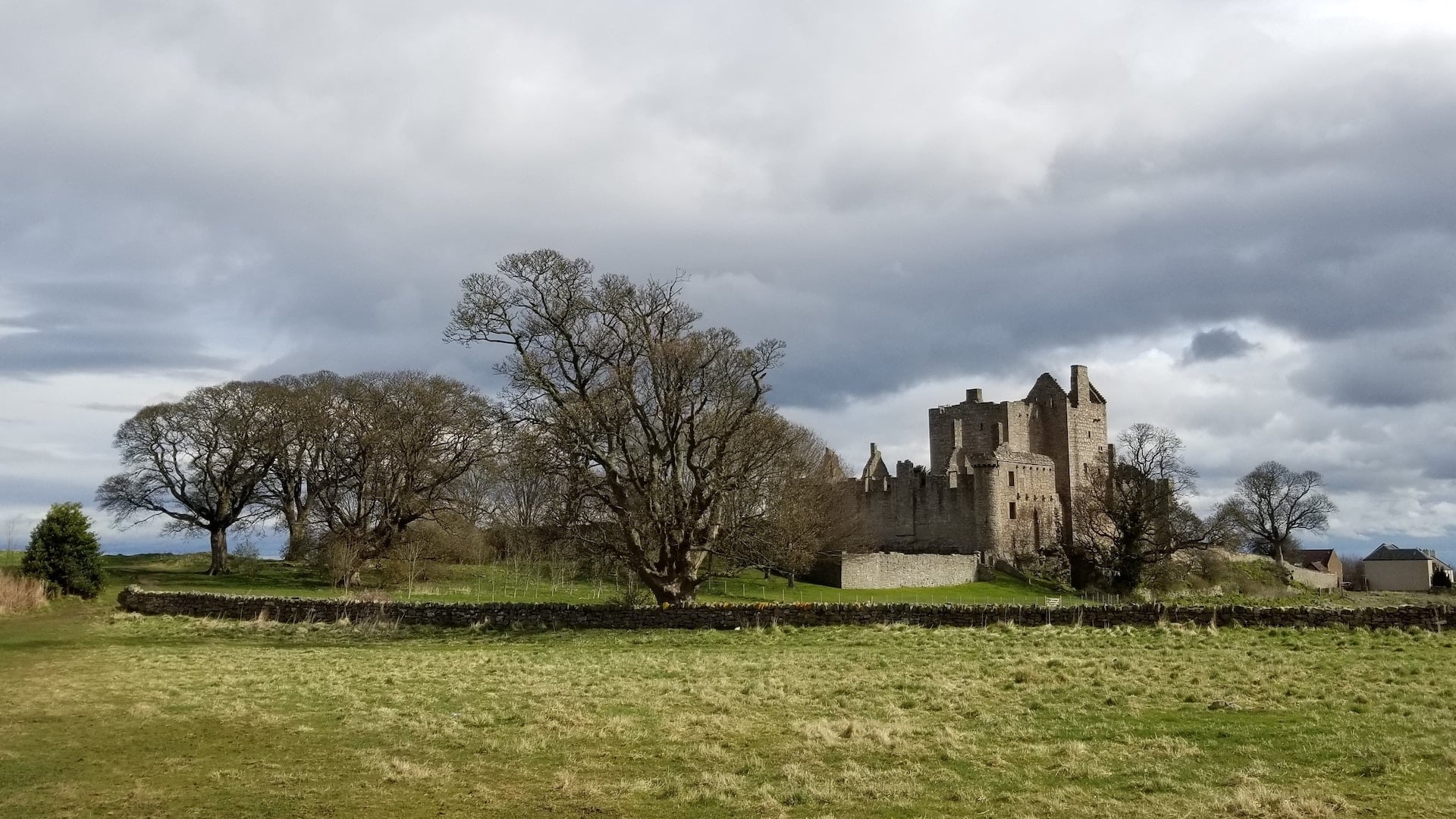No visit to Edinburgh is complete until you’ve walked to the top of the Royal Mile to tour Edinburgh Castle. The castle has been remarkably well maintained and is as splendid now as it was in its heyday. You can stand on the battlements high above the city and see all the landmarks—the Firth of Forth, Arthur’s Seat, the Scott Monument. You can tour the beautiful Great Hall where Scotland’s royal family hosted lavish banquets. You can enter the Royal Palace and see the nation’s crown jewels. It’s a beautiful spot rich with history and all wonderfully preserved.
A few kilometers away, closer to the outskirts of the city, is another historic castle, and one that has fallen on hard times. Where Edinburgh Castle retains most of its splendor, Craigmillar Castle retains little. It may not quite be a ruin, but it’s not far from it. Though parts of the walls still stand, other parts have long since collapsed. Though you can take stairways to some of the battlements, others are tottering and in danger of collapsing. Though you can see the outlines of the different rooms and buildings, they are all in a sad state of disrepair. It’s a mere shell, a mere shadow, of its former self.
In these two castles I see an illustration of humanity. We were created by God to be perfect—unmarred by sin and all of its terrible effects. God’s law was written on our hearts so that we knew what he required and why he required it. God’s blessing was upon us so that we could do all that he required of us out of joyful obedience to him. We were like Edinburgh Castle—whole, complete, splendid, maintained.
Yet through our own obstinacy we fell into sin and thus into a state of decay. We rebelled against God and brought upon ourself the fearsome consequences—suffering and sorrow, warfare and weeping, death and eternal destruction. We were left little more than Craigmillar Castle, a shell of our former selves—broken, incomplete, marred, wrecked.
But what of the law that was written on our hearts? Was it blotted out? Was it destroyed? No, by God’s grace. It has now been distorted, to be certain. It is no longer clear and pristine. But it is still there even in the most rebellious of human beings so that like Craigmillar Castle we can still trace its shape, still fit together the pieces, still gain a distant glimpse of the beauty and the glory of its original design—the beauty and glory for which we were designed.
For as Sinclair Ferguson says,
Paul … says that even in societies where the Law of Moses has not been known, to a certain extent people may still sometimes do ‘by nature’—we might say ‘instinctively’—the things the law of God commands. They thus show that the requirements of the law are written on their hearts. The human heart retains a distorted copy, a smudged image of God’s original will. All of us retain some sense that we were created in God’s likeness, made to live for his glory, and hard-wired for obedience to him as it were—although now major distortions and malfunctions have affected our instincts. Were that hard-wiring totally destroyed we would cease to be distinctly human. But, in fact, relics of it remain in us, fragments of our lost destiny. Like a ruined castle it is still possible to discern the glory for which we were created.
And for that we ought to praise God!









